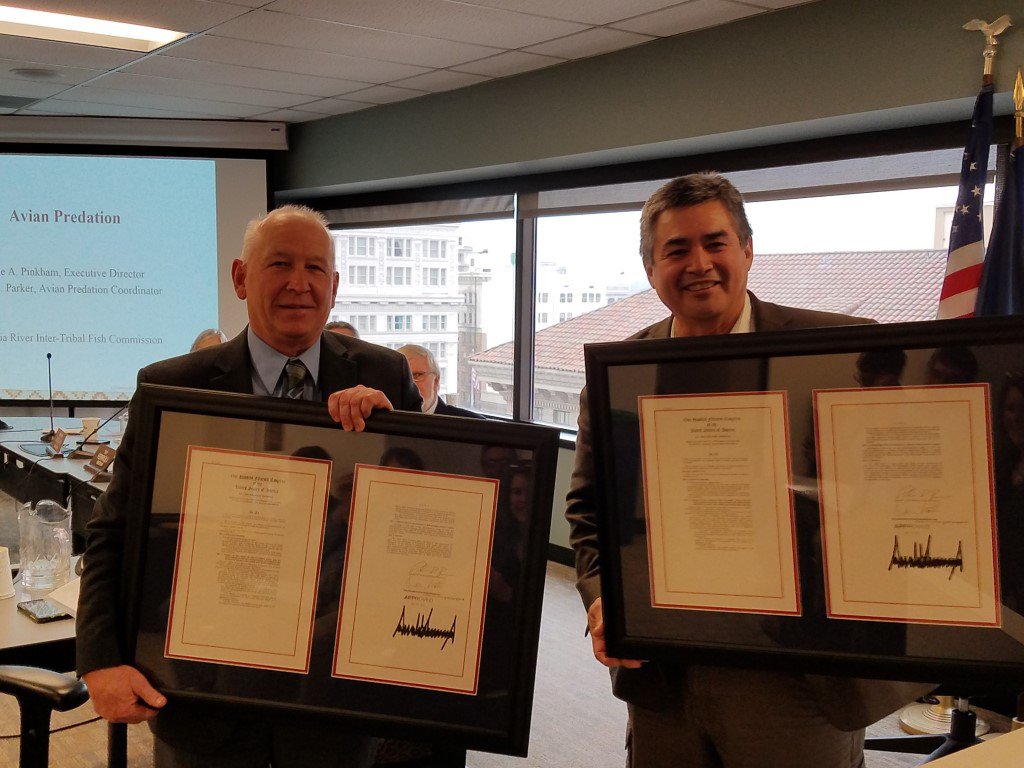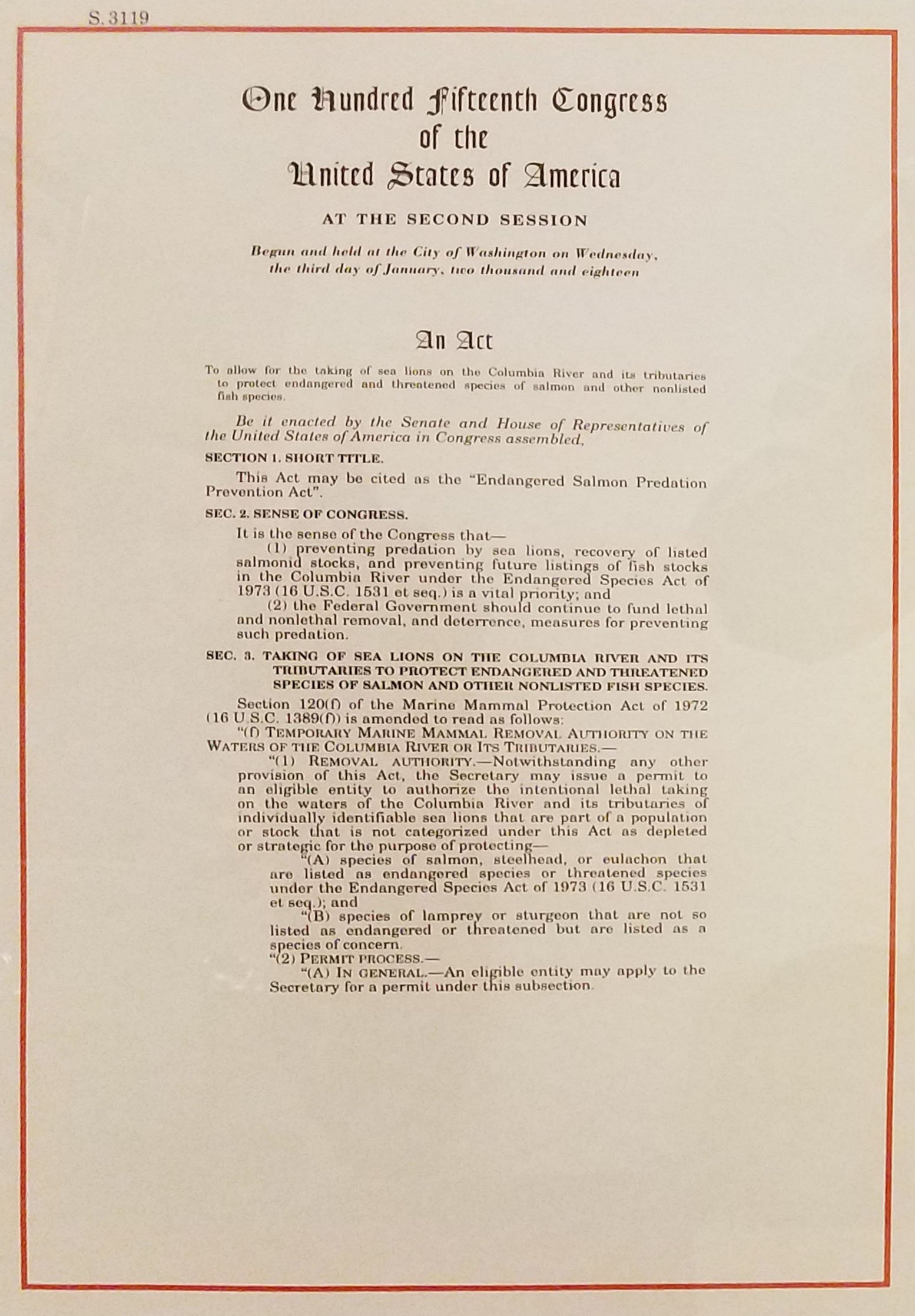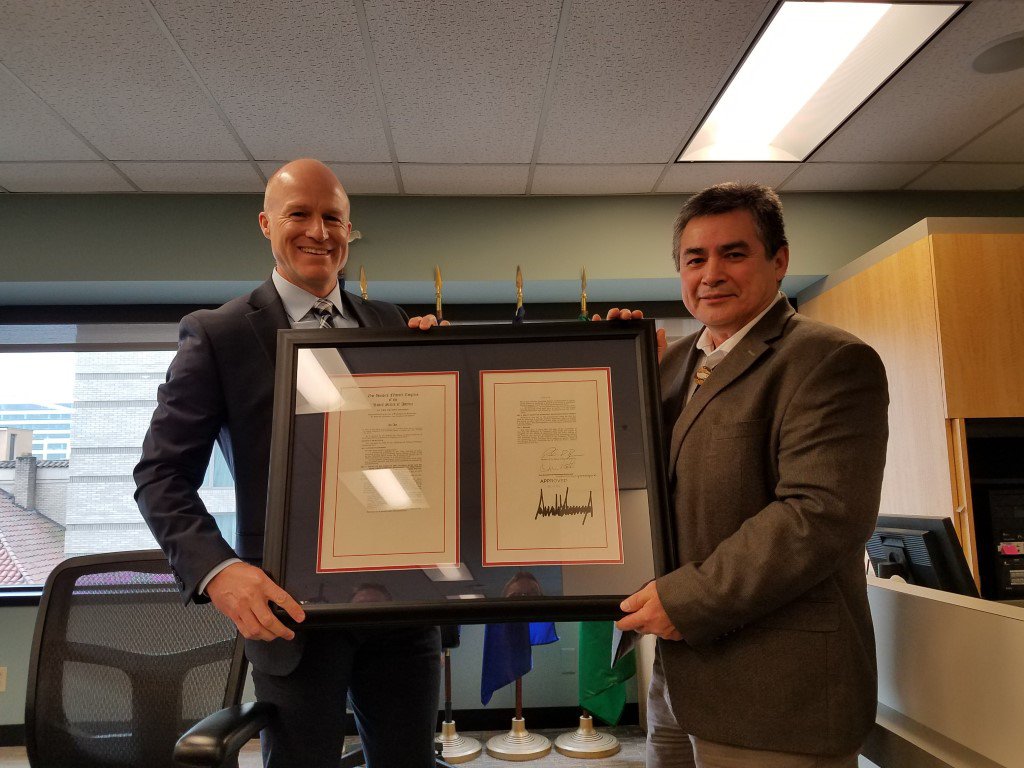Council Honors CRITFC For Successful Legislation To Increase Protection of Salmon
- February 12, 2020
- John Harrison

Today’s fractured politics make bipartisan successes few and far between, and so when a new law wins support from both sides of the political spectrum it is cause for celebration. Tuesday the Northwest Power and Conservation Council paused during its regular monthly meeting to note the bipartisan, collaborative effort of Northwest states and tribes, particularly the Columbia River Inter-Tribal Fish Commission, that led to the successful passage of S3119, the Endangered Salmon Predation Prevention Act, the law that strengthens protection of salmon and steelhead in the Columbia River by increasing enforcement pressure on the most aggressive marine mammals.

Signed into law in December 2018 by President Donald Trump, the Act gives the Washington, Oregon, and Idaho fish and wildlife departments, and the Columbia River Inter-Tribal Fish Commission, expanded authority to remove a limited number of the most aggressive sea lions that have been identified as killing fish in the Columbia River and its tributaries downstream of McNary Dam. Before the law was enacted, only California sea lions could be removed, and only at Bonneville Dam. With the new federal authorization, the most aggressive predators can be removed from other rivers, including, for example, Oregon’s Willamette River, where sea lions have decimated wild Willamette Winter Steelhead, a threatened species.
Jeffery Allen, an Idaho member of the Council and chair of the Council’s public affairs committee, presented framed copies of the signed bill to Jaime Pinkham, CRITFC executive director, and Guy Norman, a Washington member of the Council and chair of the Council’s fish and wildlife committee. Allen also recognized the efforts in support of the legislation by former Idaho Council member and Council Chair Bill Booth.
“Today we pause and celebrate a success, acknowledge a vital partnership with CRITFC, and recognize leadership,” Allen said. “This law amends the Marine Mammal Protection Act and for most people in Congress that was a deal-breaker.” He noted that for several years the proposed legislation languished, the prevailing attitude in Congress was that “just OK is good enough,” and there was no movement toward amending the law to more aggressively target and remove the most voracious predators. Hazing sea lions was not working; greater authority was needed to actually remove sea lions from the rivers.
In particular, Allen pointed to the role of CRITFC in making the legislation a success.

“Just OK was not OK for Jaime and the CRITFC staff,” he said. “Rather than accept a watered-down sea lion bill, they helped rewrite the bill and actually make it stronger; their approach was fearless, and I think that attitude was one of the things that turned the tide in our favor,” he said.
Pinkham thanked the Council and said the sea lion legislation was an example of the power of collaboration and recognition that disparate agencies can rally around a common cause for the benefit of a species that faces so many challenges to its survival.
Allen also read a statement from Booth, who acknowledged the effective, successful partnership, which he considers one of the most important accomplishments of his long tenure on the Council. “We should all be very proud of of the accomplishment, It could never have happened without the trust, and mutual support, and bulldog determination of the Council and CRITFC.”



